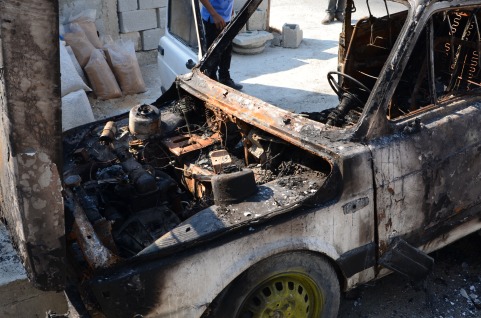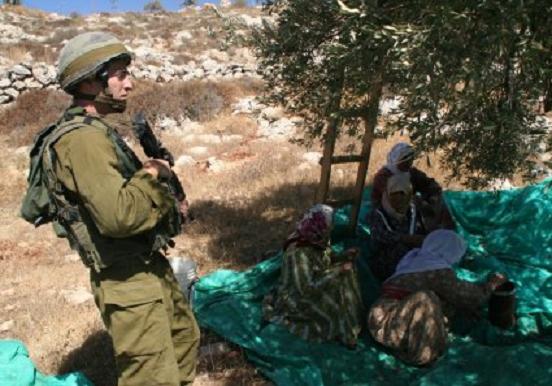Tag: Olive Trees
-
Settlers burn olive trees in Sarta
27th September 2013 | International Solidarity Movement, Nablus Team | Sarta, Occupied Palestine Settlers burnt around 35 olive trees in the Palestinian village of Sarta late on Thursday night, following the area being declared a closed military zone in preparation for the construction of a new settler road. Around 60 settlers from the illegal Bruchin settlement and…
-
Call to action: Join ISM for the 2013 Olive Harvest Campaign
22nd August 2013 | International Solidarity Movement | Occupied West Bank At a time of regular settler violence in the West Bank, the International Solidarity Movement (ISM) is issuing an urgent call for volunteers to join us for the 2013 Olive Harvest Campaign at the invitation of Palestinian communities. The olive tree is a national symbol for…
-
Israel starts illegal construction, destroying field of olive trees on private Palestinian land near village of Immatin
17th August 2013 | International Solidarity Movement, Nablus Team | Immatin, Occupied Palestine Immatin is a village situated in close proximity to the annexation wall and flanked by the illegal settlements of Qedumim, Gilad and Immanu’el. Recently, three brothers from the village went to work on their land. However, when they arrived, they found that…



